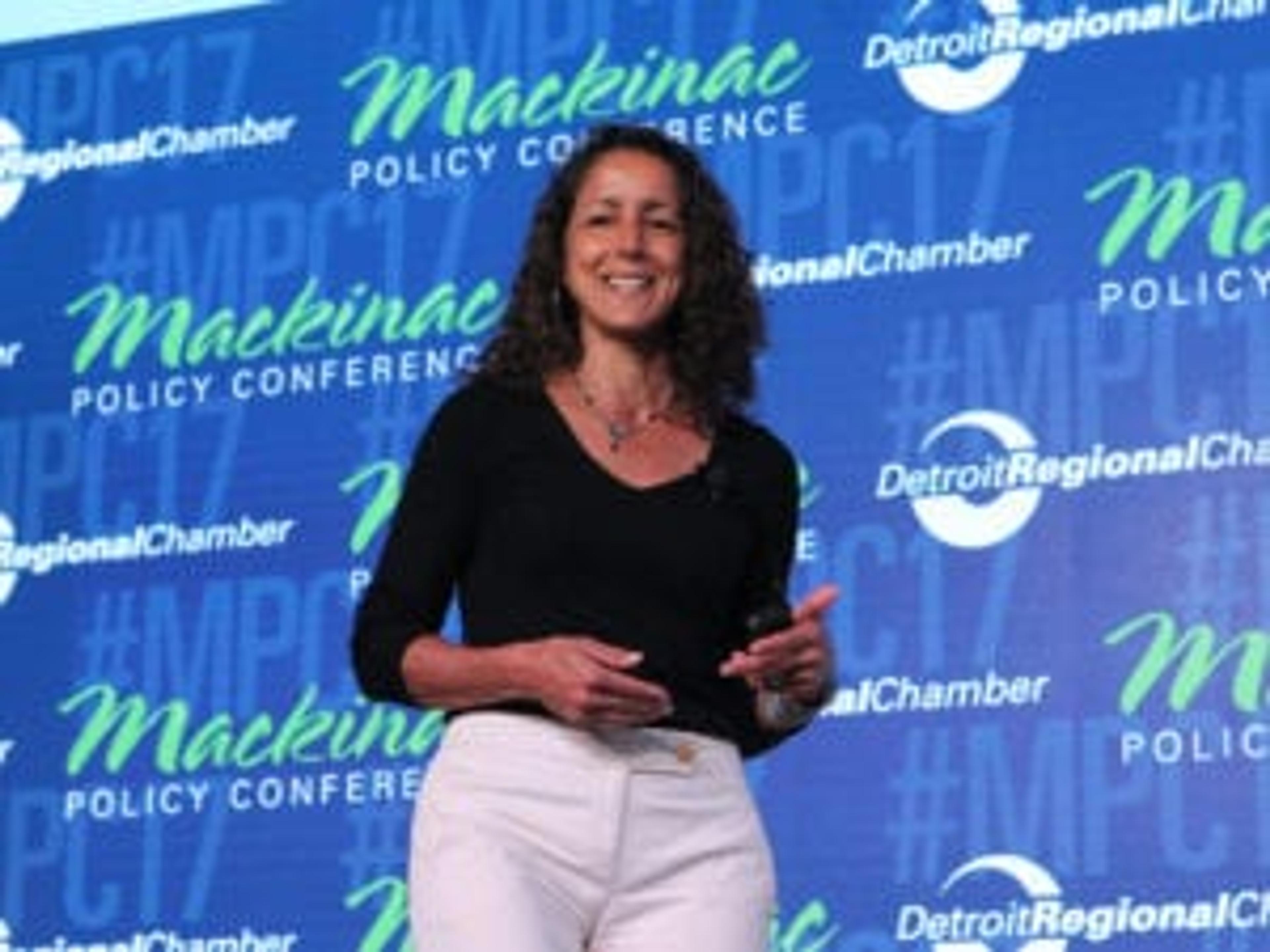Filmmaker Shares Tips For Repairing Relationships Damaged Over Political Dialogue

Julie Bitely
| 3 min read

Julie Winokur has spent the past five years engaging in “radical civility.”
After being called out by her son for having rigid political views, she decided to do something about it and she wants others to follow her lead.
An award-winning documentary filmmaker, Winokur’s “Bring It to the Table” project has allowed people from across the political spectrum to share their beliefs about a variety of contentious topics.

Julie Winokur giving a keynote address at the 2017 Mackinac Policy Conference.
“The goal, initially, was for me to get out and try to understand what people believe, because I recognize that my own beliefs were pretty set,” she said. “They were calcified and I was not being that version of citizen that I wanted to see in other people. So it was really a journey of taking personal responsibility.”
Breaking down hyper partisanship and getting people to talk openly and honestly is critical when it comes to healing current divides in our country, Winokur said.
The University of Michigan alumna and New Jersey resident is in Michigan to speak at the Mackinac Policy Conference. She challenged conference attendees to engage in a random act of civil discourse after they leave the island.
If the political drama in your social media feeds feels overwhelming and you want to move past the rhetoric, Winokur has some tips, particularly when it comes to repairing relationships damaged by misunderstandings over politics.
- First, be the bigger person and broach the issue. Seek to understand the other person’s point of view.
- Diffuse the rhetoric. People have rehearsed talking points – ask why they feel the way they do and really listen to the answer they give.
- Learn from the other person. It’s okay if you don’t agree at the end of the day, but understanding a different point of view can at least take some of the hostility and stereotypes out of the equation.
If you’re seeking to help someone understand your point of view, frame it in real terms. Share your own personal experiences that have shaped your world view. Never resort to name calling.
“When you start to peel it back, you make a lot more progress in opening people’s minds to a conversation than you would if you went in to the conversation saying “Well, that’s stupid,” or “You’re wrong.”
Talking through your feelings surrounding tough, divisive issues can be a healthy release. Seeking to understand a friend or loved ones’ differing views with an open mind can help keep relationships strong, despite your individual political views. Keep asking questions and keep the lines of communication open.
“We all need to learn how to listen,” Winokur said.
If you enjoyed this post, you might also like:
Main image photo credit: Gage Skidmore, Julie Winokur photo credit: Detroit Regional Chamber





